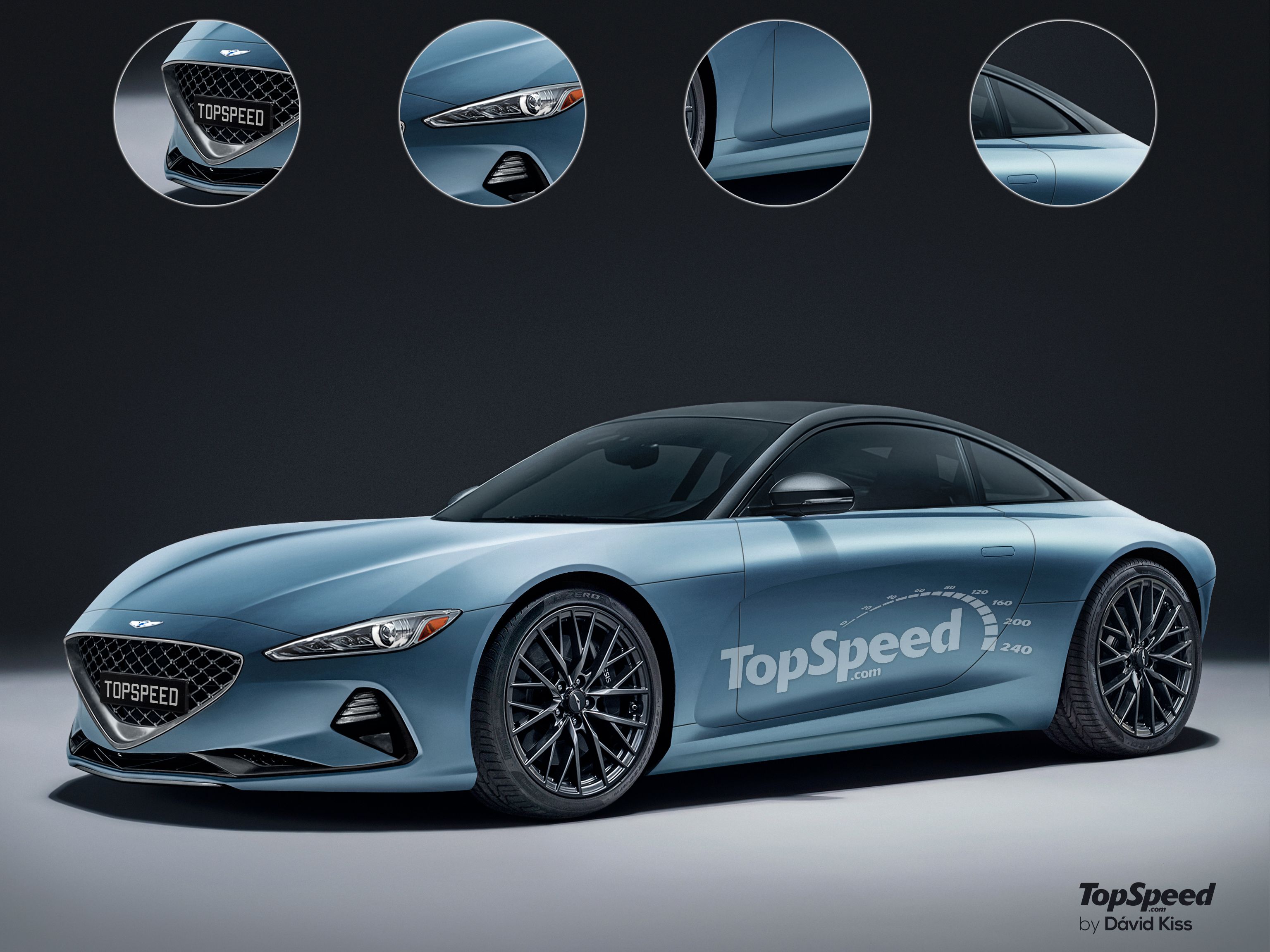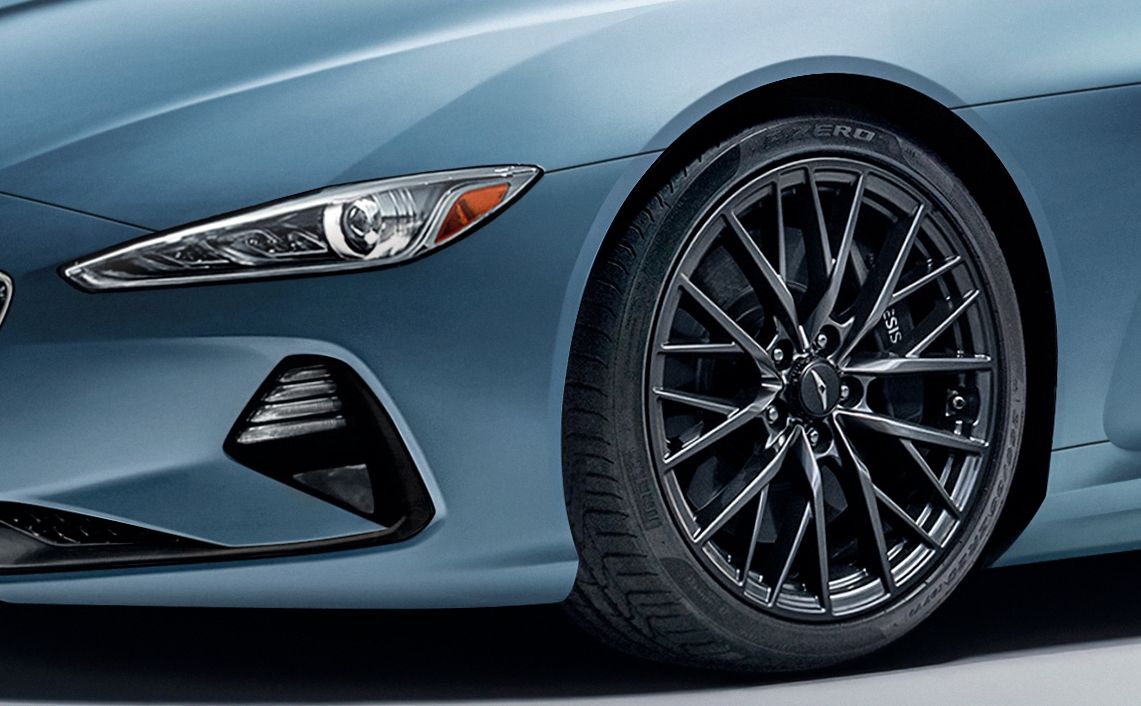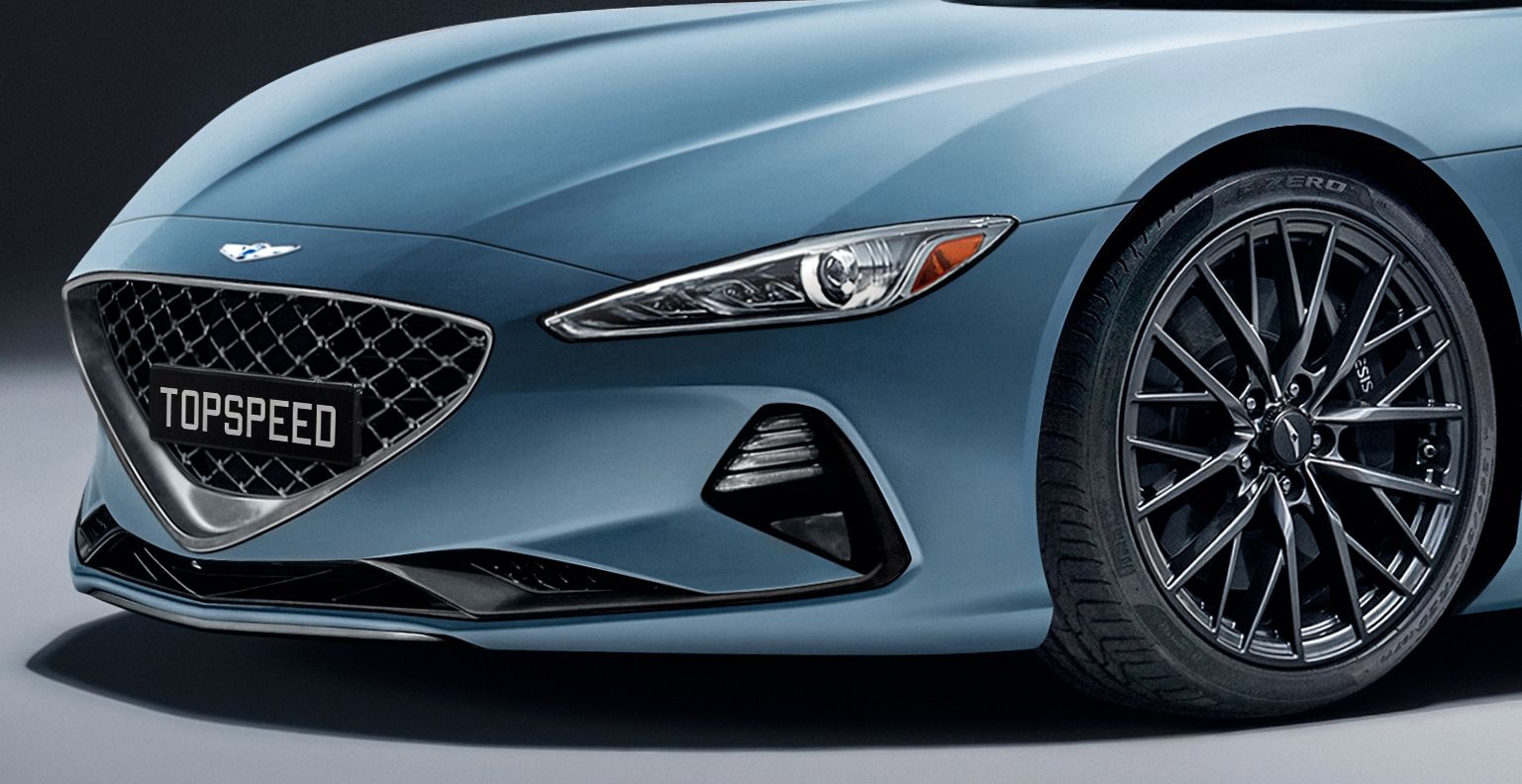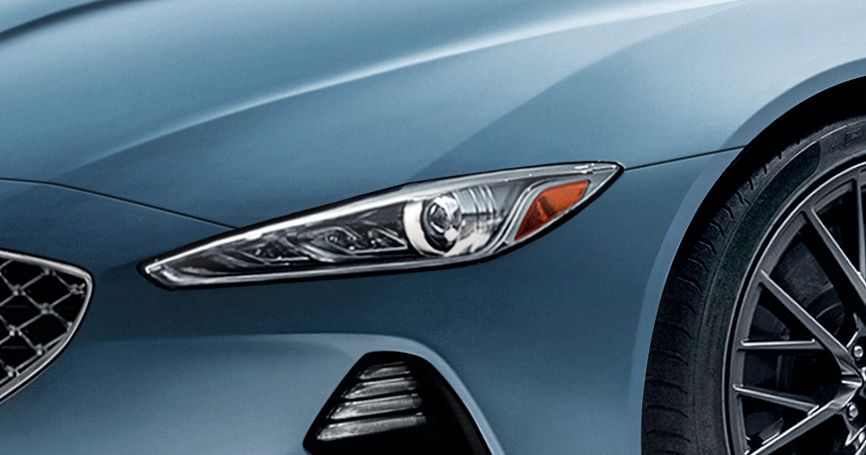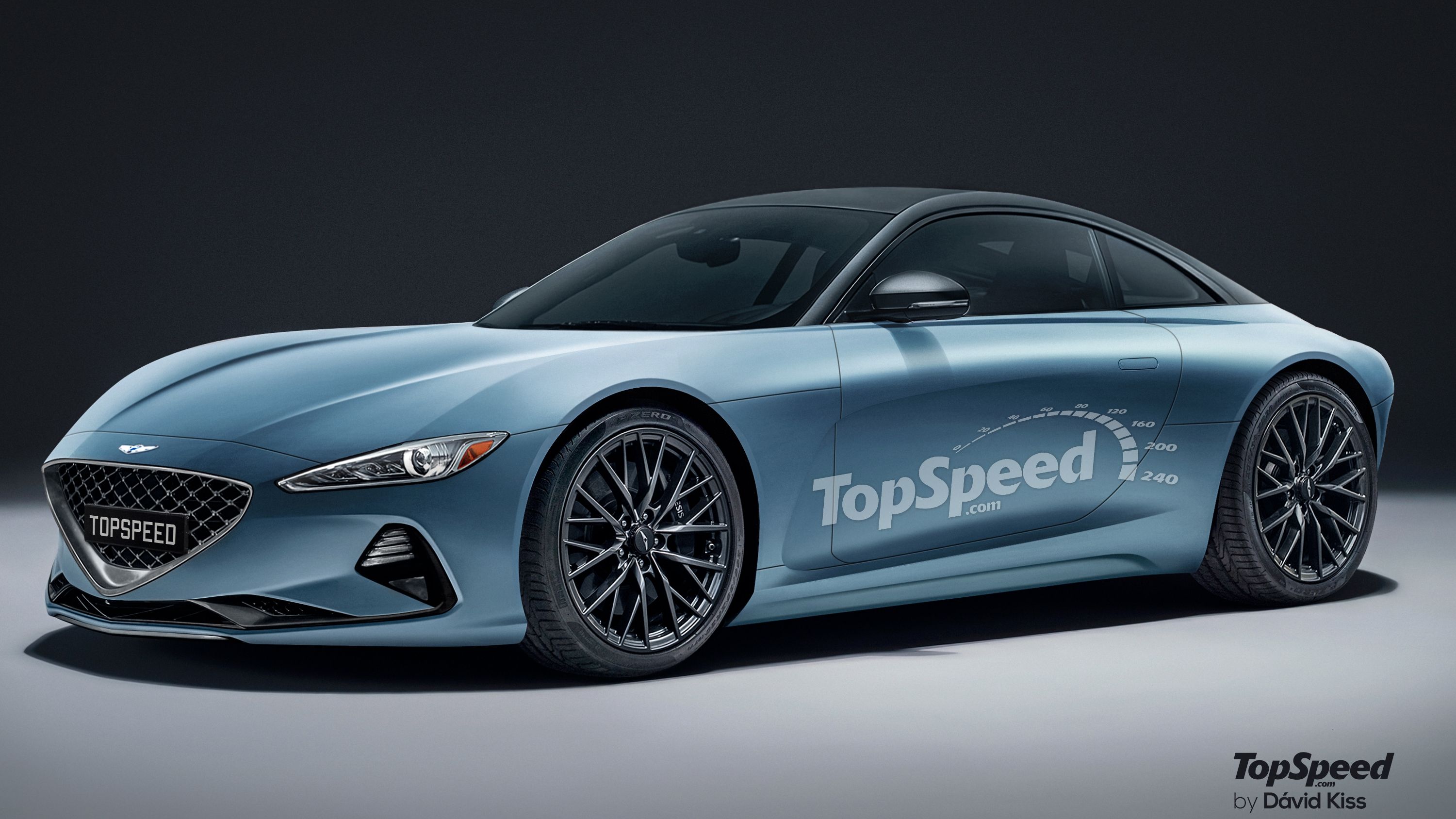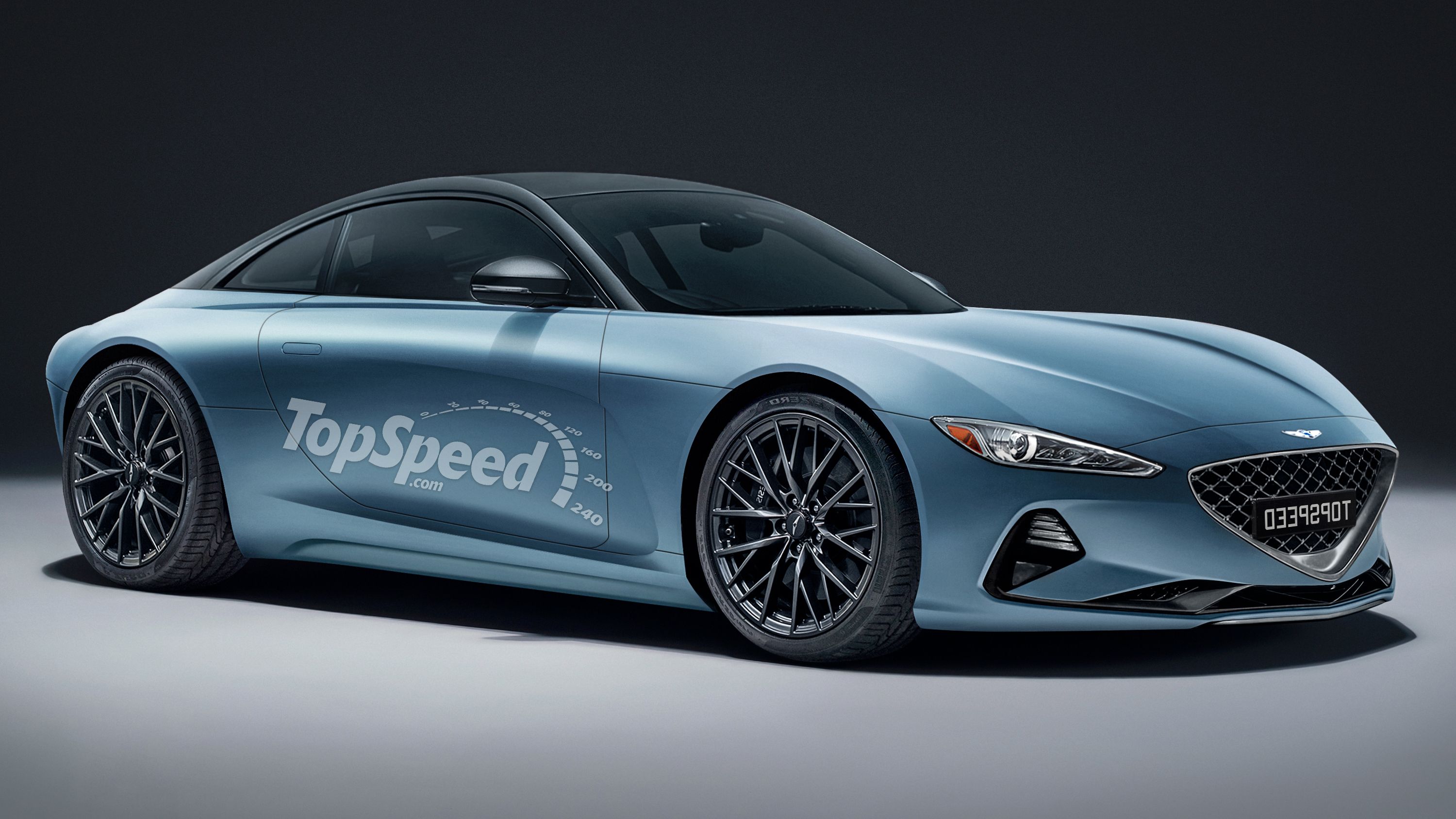Less than three years old as of 2018, Genesis Motors is already making headlines. Split from the Hyundai Genesis nameplate, the Korean luxury division already offers three sedans, and it's working on a couple of SUVs too. More recently though, we got confirmation that Genesis also wants to build a sports car. The two-door coupe could be based on the Essentia concept car.
Word of Genesis' plans to develop a sports car got out in January 2018, when Hyundai design vice president Luc Donkerwolke told Wheels Magazine that "we are definitely doing it. We are not going autonomous for all of our cars." In addition, the brand's head of R&D, Woong-chul Yang, confirmed that Genesis wants a sports car and that its development will be handled by Hyundai's N performance division. Not much is known about it at this point, but we created a rendering of the car, and we will discuss what we already know about this project in the speculative review below.
Continue reading to learn more about Genesis' upcoming sports car.
2020 Genesis Sports Car
- Make: Array
- Model: 2020 Genesis Sports Car
2020 Genesis Sports Car Exterior
There's no official hint from the company as to how this sports car will look like, but I'm pretty sure it will be inspired by the Essentia concept that we saw at the 2018 New York Auto Show. Of course, with so many concept not making it into production, it's easy to say that the Essentia could remain just a show car, but this is the brand's only coupe so far and it makes sense to see it as a preview of a new product.
Sure, the sports car won't be as exotic on the outside, but the Korean brand will probably keep the shape and size of the concept intact. The big grille that looks a bit like Mazda's should make it into production, but with a honeycomb mesh inseat of the double horizontal slat and carbon-fiber inserts. The LED stripes will be replaced by more conventional headlamps, likely inspired by existing Genesis sedans. An aggressive bumper with big side outlets and thin vents in the center will round off the front fascia.
The profile will change a bit, but it will retain the classic sports car layout with the long, muscular hood, the sleek roof, and the short decklid. The front fenders will have a more conventional design and will be taller above the wheels. The side skirts will be less aggressive, while the big vents in front of the doors will be removed. However, Genesis will probably keep some sort of character line above the side skirts for a more organic look.
Hopefully, Genesis will keep the Essentia's beltline intact. This feature descends slowly from the doors toward the rear end, making the rear fenders seem more muscular and giving the rear end a boat-tail-inspired design. The concept's all-glass roof will be replaced with a more conventional design. The rear window won't extend as much toward the rear either. Of course, the Lambo-style doors will be dropped in favor of conventional doors, which will also have proper side mirrors.
Around back, the production model will get less aggressive. The big spoiler will be gone, while the extremely thin taillights will be replaced by larger units. A more production-friendly bumper will find its way below the fascia, but the sports car will get a race-inspired diffuser and a quad exhaust setup.
Although my description sounds like the Essentia concept will be butchered before going into production, the sports car should turn out to be quite appealing on the outside. And if our rendering is any indication, it will snap a few necks while cruising down the road.
2020 Genesis Sports Car Interior
The interior of this new sports car is an even bigger mystery, but it wouldn't be out of question for Genesis to take a lot of cues from the Essentia concept. The show car is not overly futuristic inside the cabin. The dashboard is actually doable, despite the massive screen stretching from the instrument cluster to the passenger area. Premium automakers are now using increasingly larger displays and it won't be long until the entire dashboard is a big touchscreen.
Sure, the production model won't get so many displays, but the all-digital instrument cluster will be backed by a 10+ inch screen in the center and maybe an additional display on the passenger side. The later will give the passenger access to the infotainment system and features like audio settings, route information, and many more.
The door panels will get a massive makeover and will gain a more conventional appearance with armrests, buttons, and pockets. However, the low seating position will remain, as will the heavily bolstered seats. The latter will be redesigned for the production model, but they will have an aggressive design. Leather should be standard, as is mandatory in a premium car, but Alcantara should be available optionally. Genesis might also offer carbon-fiber seats for a more race-inspired feel.
Genesis has already confirmed that the sports car will be a two-seater, so don't expect a Porsche 911-like setup with two smaller seats in the rear.
Tech-wise, you should find features like MirrorLink, Apple CarPlay, and Android Auto, as well as server-based voice recognition technology. A premium sound system should also be offered. While the sports car won't be semi-autonomous, do expect a wide range of driver assisting systems.
2020 Genesis Sports Car Drivetrain
There's no information about the drivetrain either, but word has it Genesis might go with a hybrid setup. And it's a scenario that makes a lot of sense with just about every automaker bringing electrification to almost every niche. Unfortunately, the Essentia concept doesn't provide too many hints either. Although Genesis did say that the show car is all-electric, we don't know much beyond the fact that it features a "state-of-the-art" high-density battery and "multiple electric motors."
It's very unlikely that Genesis will skip a gasoline engine for this sports car, but it could get a couple of electric motors at the front axle. The Korean could also go with a multiple drivetrain setup that includes a gasoline-only base model and a range-topping hybrid version.
Should Genesis aim at different markets, the range could begin with a version of the company's turbocharged, four-cylinder engine, which delivers up to 252 horsepower and 260 pound-feet of torque in the G70 sedan. Another option is the familiar 3.3-liter V-6. The Lambda powerplant is capable of more than 350 horsepower in all of Genesis' applications. For example, it cranks out 365 horsepower and 376 pound-feet in the G70.
As for the hybrid, it's worth pointing out that Genesis doesn't have this setup in its current lineup, which includes the G70, G80, and G90. On the other hand, parent company Hyundai already offers hybrid versions of the Ioniq and Sonata. While the Ioniq's drivetrain doesn't have the potential to power a sports car, the Sonata's four-cylinder and electric motor combo delivers close to 200 horsepower. Adding another electric motor could increase output to 250 horses.
However, it's safe to assume that Genesis wants a more powerful hybrid, which is why the sports car will probably get a brand-new drivetrain that combines electricity with a V-6. The Koreans are probably aiming for at least 350 horsepower, if not 400 horses for this version.
2020 Genesis Sports Car Prices
It's difficult to estimate a pricing point for the Genesis sports car, mostly because we don't know what kind of drivetrains it will get. The higher performance hybrid will probably cost in excess of $50,000, but a lower, less powerful trim should cost significantly less. It's early to draw a conclusion, but the coupe could be aimed at the same market as the Toyota Supra, which is rumored to begin from nearly $40,000.
2020 Genesis Sports Car Competition
Toyota Supra
The iconic Supra is set to return in 2018 after a 16-year absence. Although it has yet to be unveiled as of this writing, the design is no longer a mystery as Toyota previewed the sports car through a race-spec concept. Co-developed with the BMW Z4, the Supra is set to use a few drivetrains from the German manufacturer, including the 2.0-liter four-cylinder and the 3.0-liter V-6. Output should range from around 200 horsepower in the base model to at least 300 horses in the range-topping V-6 version. A hybrid is also likely, and word has it Toyota will use a V-6 and at least one electric motor. Output is rumored to sit around the 400-horsepower mark. Pricing will probably start from just below $40,000 and will increase to more than $50,000 for the hybrid variant. The new Supra will make its global debut at the 2018 Goodwood Festival of Speed.
Read our speculative review of the upcoming Toyota Supra.
Acura NSX
The NSX is radically different because it has a mid-engined layout and competes in a more expensive market, but it could compete with the Genesis should the Koreans offer a more expensive, ultra-powerful model. Much like the Supra, the NSX returned to the market after a little more than a decade. But while the Supra will be sold with gasoline engines and hybrid setups, the NSX is available as a gas-electric model only, pairing a combustion engine to no fewer than three electric motors. The gas unit is a naturally aspirated 3.5-liter V-6, while two of the three electric motors spin the front wheels. The hybrid combo sends 573 horsepower to all four wheels, while the V-6 alone generates a 406 pound-feet of torque. Sprinting from 0 to 60 mph takes around 3.5 seconds, while top speed is rated at more than 180 mph. The only issue here is that the NSX is rather expensive, fetching $156,000 before options.
Read our full story on the 2018 Acura NSX.
Conclusion
The fact that Genesis wants to build a sports car is a bit of a surprise. Not only the brand is less than three years old, but Hyundai has yet to deliver high-performance vehicles up until now, and most of its coupes were rather mild and boring. It's also surprising because Genesis doesn't really need a sports car right now. With three sedans on the market, the Korean brand is about to launch a couple of SUVs, which will not only increase sales but will also bring bigger profits. Considering all of the above, it's fantastic that Hyundai is bringing together its luxury brand and performance N arm to create what could become a solid competitor for the Toyota Supra. I'm really excited about this vehicle, and I will be back with an update as soon as I get more info.
Further reading
Read our full review on the 2018 Genesis Essentia.
Read more Genesis news.

